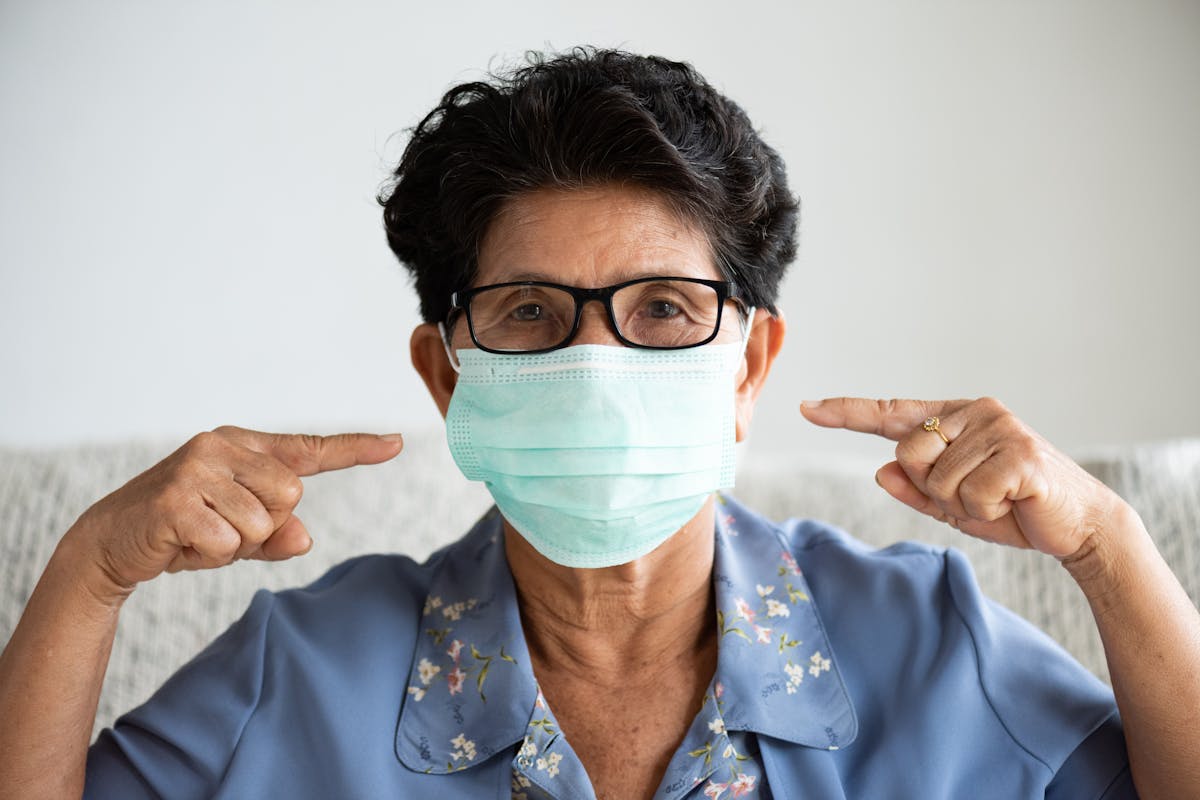Learn More About the Delta Variant and How to Guard Against It

Just when we were all starting to feel like it was safe to take our masks off again, the Delta variant of the coronavirus began spreading across the country at a rapid rate. Unfortunately, early research shows the Delta variant is twice as contagious as the original virus and likely causes more serious illness.
Unvaccinated people are at high risk for contracting the Delta variant. Although there are breakthrough cases among adults who are fully vaccinated, the vaccines seem to keep people from ending up in the hospital or losing their life. A July 2021 study of public health records in Los Angeles showed unvaccinated people were 29 times more likely to be hospitalized than those who were vaccinated!
With the coronavirus surging once again, what can seniors do to stay safe?
We have a few reminders and some new research on how to protect yourself against this new variant.
Protecting Yourself from the Delta Variant
We know so much more now about how the virus is spread than we did when the original COVID-19 crisis began. According to the Centers for Disease Control and Prevention (CDC):
The principal mode by which people are infected with SARS-CoV-2 (the virus that causes COVID-19) is through exposure to respiratory fluids carrying infectious virus. Exposure occurs in three principal ways: (1) inhalation of very fine respiratory droplets and aerosol particles, (2) deposition of respiratory droplets and particles on exposed mucous membranes in the mouth, nose, or eye by direct splashes and sprays, and (3) touching mucous membranes with hands that have been soiled either directly by virus-containing respiratory fluids or indirectly by touching surfaces with virus on them.
What that means is it’s time to take steps to protect yourself, including:
- Get vaccinated: If you haven’t already done so, find a vaccination site in your community and get the shot. Vaccines are 88% effective at warding off the Delta variant. People who are fully vaccinated are eight times less likely to get sick compared with unvaccinated people. If you have any concerns about potential side effects from being vaccinated, talk with your primary care physician.
- Wear a mask: Because the virus is carried by respiratory fluids, wearing a mask helps keep you from inhaling airborne droplets and aerosol particles. Experts suggest it’s best to purchase KN95 masks. They can be molded to your face, better preventing any gaps. Fortunately, these masks are much more readily available than during the early days of the pandemic. Keep them in your car, pocket, and purse to make sure you always have one on hand. Wear them when you will be in an indoor public place, as well as outdoors in a crowd.
- Wash your hands: Droplets can land on high-touch surfaces without even being seen. If you get the virus on your hands and then unwittingly rub your nose or mouth, there’s a good chance you’ll find yourself battling coronavirus. That’s why it’s vital to scrub your hands thoroughly, especially if you are out in public. Hot, soapy water is best. For times you don’t have access to hot water, carry a bottle of hand sanitizer with you.
- Exercise caution: Being in close quarters with people who may be unknowingly carrying the Delta variant increases your risk for catching it, even if you are fully vaccinated. Thoughtfully consider where you go and with whom you spend time. An indoor wedding with a largely unvaccinated group of friends and family probably isn’t a great idea. Travel is another area to be cautious. Car travel generally gives you more control over your environment. But if you are considering traveling by plane or train, research the company’s COVID restrictions before booking.
One final tip is to consider using home delivery services for meals and groceries. If you are new to these types of services, Meal Delivery Service Benefits for Seniors has some tips you might find useful.
Follow the Life Protect Blog for More Updates
If you haven’t done so already, bookmark the Life Protect Blog and stop back often. We share updates each week on topics ranging from nutrition and exercise for seniors to how to remain independent at home longer.